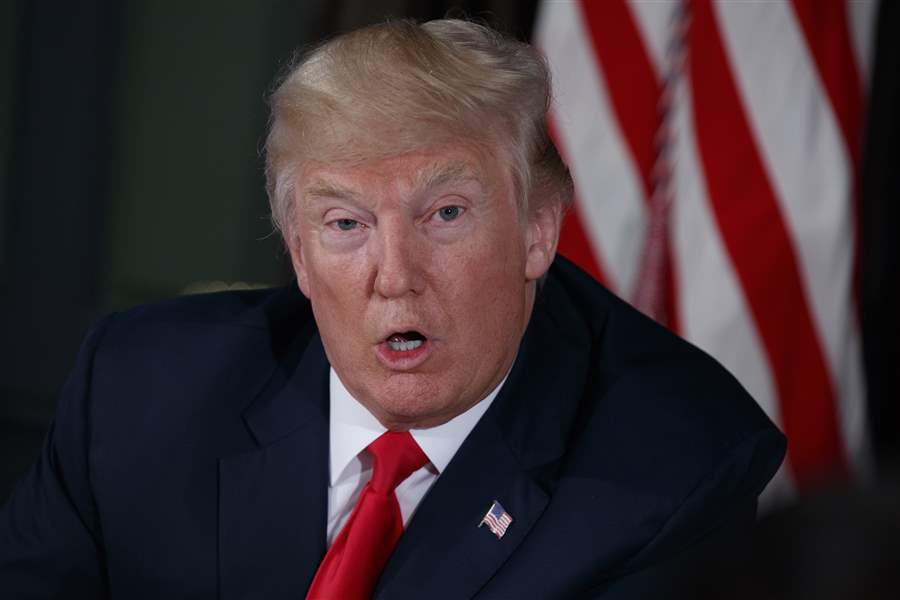
EDITORIAL
Call opioid crisis what it is: a national emergency
10/19/2017
In August, President Trump said that the opioid crisis was a national emergecy. He is expected to officially declare it next week.
ASSOCIATED pRESS
They say the first step in dealing with any great or chronic problem is first to name it. So efforts to rein in opioid addiction will get a much-needed infusion of energy next week when President Trump declares the opioid crisis to be what it is: a national emergency.
Moreover, needed money will be brought to the fight for law enforcement, and additional Medicaid funds will be freed up for rehabilitation.
It is also expected that privacy rules will be waived, allowing first responders to notify family members when someone has been revived. Rules prevented this from happening in the past, so a valuable level of support for addicts was not engaged.
Click here to view more Blade editorials
But the biggest benefit of a presidential declaration is that it will focus the nation’s energy on an epidemic that continues to kill more than 90 people per day.
A renewed focus is badly needed after a rough couple of weeks. On Sept. 29, Health and Human Services Secretary Tom Price resigned following criticism of his expensive travel habits. And, early this week, U.S. Rep. Tom Marino (R., Pa.) took his name out of consideration for being the nation’s new drug czar after an explosive report from the Washington Post and 60 Minutes implied that he was in the pockets of Big Pharma lobbyists.
In 2015, Mr. Marino was a sponsor of the Ensuring Patient Access and Effective Drug Enforcement Bill. The pitch for the bill was that it would ensure that painkillers would get into the hands of chronically ill patients who needed them. But the result of the bill, which was passed without any real opposition, was that the Drug Enforcement Agency now has to meet an almost impossible standard before stopping suspicious shipments of opioids. Pharmaceutical lobbyists spent millions in an attempt to convince Congress to get the DEA to back off, and the efforts paid off.
Prior to the bill’s passage, the DEA was able to fine distributors and prevent massive amounts of opioids from reaching the streets. In some cases, notably in West Virginia, which has been devastated by the drug crisis, millions of doses were being sent to towns with only a few thousand people. A midsize distributor sent 20 million doses to pharmacies in West Virginia over a five-year period. Since late 2015, not a single suspension order has been issued against a distributor.
Sen. Rob Portman (R., Ohio) has backed a call from Sen. Claire McCaskill (D., Mo.) to repeal Ensuring Patient Access.
“The DEA should be able to effectively go after bad actors, and I think Congress should re-examine this issue,” Mr. Portman told The Blade’s editorial board.
Mr. Portman continues to push his STOP Act, which targets the shipping of fentanyl through the U.S. Postal Service. Despite having 25 bipartisan co-sponsors, the bill is inexplicably languishing in the Senate without being brought up for a vote.
“It is time to pass this bill,” Mr. Portman said.
It is.
It is time for our government to call a national emergency by its name and begin to act, on many fronts. Two big steps: Repeal Ensuring Patient Access and pass STOP.